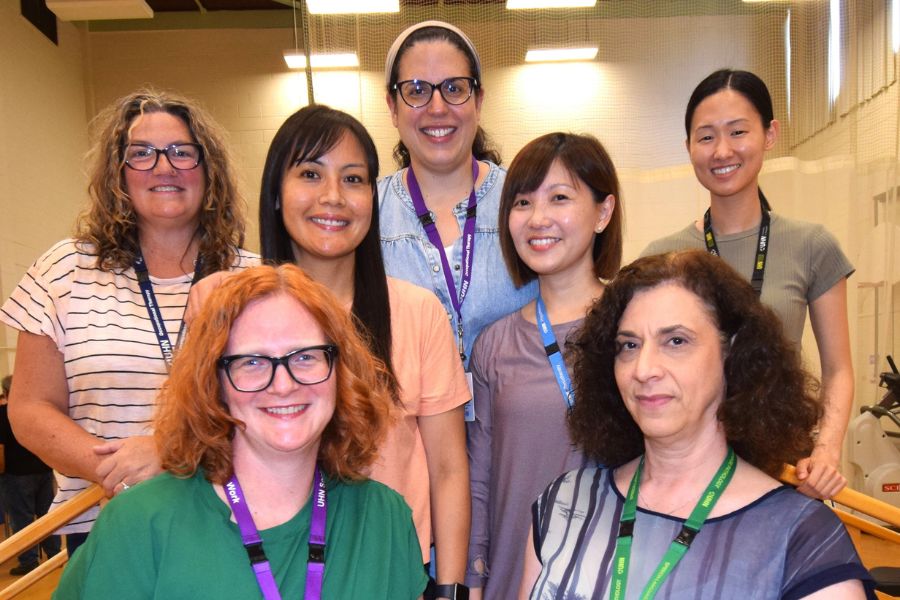Mr. Mark Krembil [R] and Dr. Kate Williams [L] work together to identify and invest in innovative neuroscience solutions. Photo: Tim Fraser (Mr. Krembil), courtesy of Krembil Foundation (Dr. Williams)
By Bryan Borzykowski
Neuroscience is full of yet-to-be-solved mysteries, but one thing is for certain: Canadian brain research has partners in Dr. Kate Williams and Mr. Mark Krembil. While Mr. Krembil has been funding game-changing neuro-related science since he started the Krembil Foundation two decades ago, the organization has pushed brain research even further since Dr. Williams became its Scientific Director in 2016. “I jumped at the chance to work with Mark and the Foundation, which puts so much emphasis and value on basic science,” says Dr. Williams, who has a PhD in neuroscience with a research focus on the neural basis of age-related and neurodevelopmental vision loss. “There is so much that we still don’t understand about the brain.”
Together, Dr. Williams and Mr. Krembil are searching the country for groundbreaking research to support, much of which is happening at the Krembil Brain Institute (KBI). Unlike other foundations, which ask people to submit grant proposals for review, the duo is trying to pinpoint key areas of research by soliciting projects and then building long-term partnerships with scientists working on those areas. Their most pressing issue? Finding effective – and potentially outside-the-box – treatments for neurodegenerative diseases, such as Alzheimer’s disease. “We’re interested in different theories because this is a very complicated disease,” says Dr. Williams.
They’re particularly excited about some of the breakthroughs Dr. Donald Weaver, Research Director of the KBI, is making around small molecules. These molecules can modulate inflammation in the brain, which may help modify the disease during its different stages and alleviate symptoms in Alzheimer’s sufferers, says Dr. Williams.
The Foundation, says Mr. Krembil, has an enduring focus on the search for neurodegenerative treatments and – one day – cures. “Since its first description in 1906, there has been little progress on the treatment of Alzheimer’s disease, and that’s something that must change,” he says. “There isn’t enough Alzheimer’s research expertise in this country, but we’ve been investing in capacity through the KBI recruitments from all over the world to help change that.”
Of course, there are many other brain-related questions that must be addressed too, all of which Dr. Williams and Mr. Krembil hope to help answer – through funding and connections – as quickly as possible. “Alzheimer’s is one of the biggest global health crises we’re facing today,” says Mr. Krembil. “So timing is everything – we need to get on these things now.”


